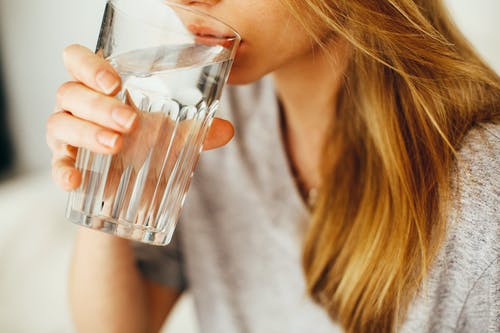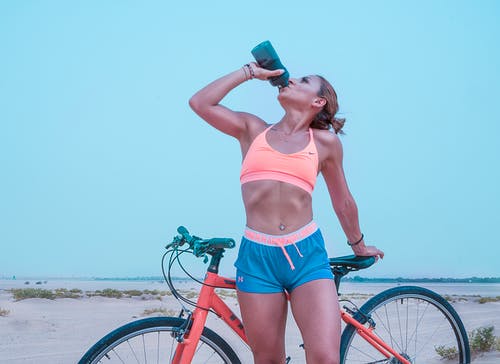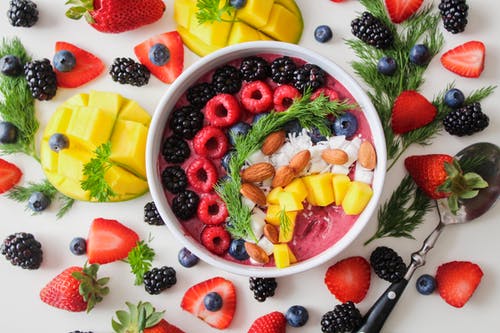Here in the UK we’ve recently been enjoying a rare period of beautiful, warm, sunny weather. Knowing we have to make the most out of it while it lasts, many of us have spent as much time as possible outside getting any hint of a tan we can or at least soaking up some vitamin D and fresh air. Hopefully we’ve been aware of the health implications of the sun for our skin and made sure to keep topped up on suncream, but have you considered other ways that the temperature affects your health needs? One of the main areas to cover here is hydration and this blog aims to answer all your questions about this crucial topic for health and wellbeing at all times, not just in the height of summer (however long that may last?!)
Why is hydration important?
Keeping well hydrated is often thought of as one of the most important aspects of our diet. Considering that the adult human body is around 60% water, with organs such as the heart and brain being around 70%, it’s clear to see why adequate hydration levels are crucial for both physical and mental health. Ensuring we take in enough liquid helps to ensure that all bodily functions can be carried out as normal and has been found to affect our sleep quality, cognition and mood. Water makes up a large part of our blood which transports essential nutrients to our cells and helps to keep organs functioning properly. Adequate hydration levels are essential so that the kidneys can get rid of waste products we no longer want and good hydration can also help to prevent infections, regulate body temperature and keep joints and eyes well lubricated. It also helps to keep our skin healthy and looking fresh too!

Fluid levels are so important that even a slight drop can lead to effects such as headaches, dizziness, lethargy, difficulty concentrating and a dry mouth. As well as these short-term effects, longer-term low fluid levels can cause constipation and urinary tract infections as well as kidney stones. It’s important that we make a habit of keeping on top of our fluid intake and don’t just start to address this following consequences or warning signs.
Adequate water intake is often recommended for those trying to lose weight, as it’s suggested that the body can mistake thirst for hunger and so keeping your fluid levels in check may help to prevent consuming excess calories from food.
How much do I need?
The NHS states that the recommended daily fluid intake for the average adult is six to eight 200ml glasses (1.2-1.6 litres), whilst the British Dietetic Association recommends 2 litres for men and 1.6 litres for women. As with many nutritional guidelines, this can vary between individuals based on factors such as age, height and weight as well as activity levels. When we exercise or spend time in hot temperatures, we lose water through sweating and so a higher intake is needed to replace that. This includes during holidays or spells of warm weather or even when we’re spending time in a hot environment such a sauna, warm car or office. During periods of illness such as sickness or diarrhoea our fluid intake should be higher, as it should be for anyone who is pregnant or breastfeeding.

It’s said that by the time we feel thirsty we are already dehydrated and may therefore already be suffering some negative consequences. One of the easiest, most reliable ways to monitor your hydration levels is by observing urine colour. Paler urine suggests good hydration levels whilst a darker colour is a key sign that the body needs more fluid. Getting into the habit of drinking regularly is the best way to keep hydrated (see top tips below).
What counts towards my water intake?
For many of us, the idea of drinking so much water every day seems plain, boring and somewhat unachievable. It’s important to know that our water intake doesn’t have to come just from plain water, although this is obviously a healthy, affordable and readily available option. There are many flavoured waters on the market nowadays – both still and sparkling which can make hitting those hydration targets a bit more palatable. Cordials are a good option too, and fresh fruit juices also count although make sure to pay attention to recommended serving sizes and sugar content. It’s a common mistake to forget the calories we drink and focus only on food. Additionally, if you’re drinking sugary drinks try to keep them to meal times to help limit any negative effects for dental health. Water can be flavoured at home with a mixture of fruits, veg and other natural flavourings and milk – both plain and flavoured, also counts.
To answer a question that confuses many of us, yes – tea and coffee DO count towards your daily fluid intake. Whilst caffeine is a mild diuretic, the fluid contained in these drinks far outweighs these effects. Again, be aware of added sugar, cream or full fat milk and/or any other additions to hot drinks. Some drinks sold at popular chains can contain as many calories as a meal and so are best to be kept as a treat as opposed to an everyday way to keep on top of hydration levels.
Whilst most of the fluid we consume comes from drinks, some fruits and vegetables have very high water content and so can make a valuable contribution. These include lettuce, cucumber, tomatoes, melon, strawberries and apples and don’t forget other foods which contain liquid such as soups, porridge and any milk you put on cereal.

Tops Tips to Stay Hydrated
Always start your day with a glass of water first thing to get you off to a good start before you get too busy!
Purchase a bottle that has timings down the side showing how much you should have drunk by what time. This can really help you to keep on top of your fluid intake as it’s far easier to take a few sips every hour than realise you’ve gone hours without drinking and feel you have to gulp down loads at once to catch up!
Do a tally chart on your phone notes section or draw/doodle 6-10 glasses of water next to your desk or wherever you’ll be spending most of your day and cross one off each time you consume a drink.
Drink through a straw – this may sound absolutely crazy and I am fairly certain there’s no scientific evidence for this, but I always drink faster when it’s through a straw! What better evidence than my own personal life experience?!

Make ice lollies at home during hot weather from flavoured water, juice, smoothies or milkshakes. You can even add in pieces of fruit for extra nutrients.
And last but not least, probably the simplest yet most effective way to ensure you drink regularly – take a drink everywhere you go! Take one in your bag to work, on your commute and especially to the gym or on a walk or bike ride. Treat yourself to a fancy reusable bottle that you want to take everywhere with you and it’ll be an excellent investment in your health!
As simple as the topic of water and fluid intake may seem, it’s one of the most fundamental aspects of good health and wellbeing. Being well hydrated is one of the most accessible, affordable and achievable ways to support your mental and physical health and so it’s a great goal at any stage of your health and fitness journey. I hope you learned some important information in this blog as well as some top tips to keep on top of your own fluid levels and let me know if you try any of them out or have any of your own to add!
Bev Meakin – Personal Trainer/ Exercise Referral Officer and Complementary Therapist. Instagram @bevs_life

